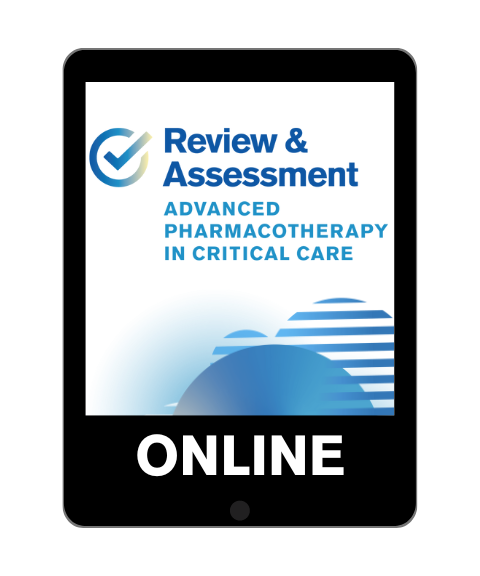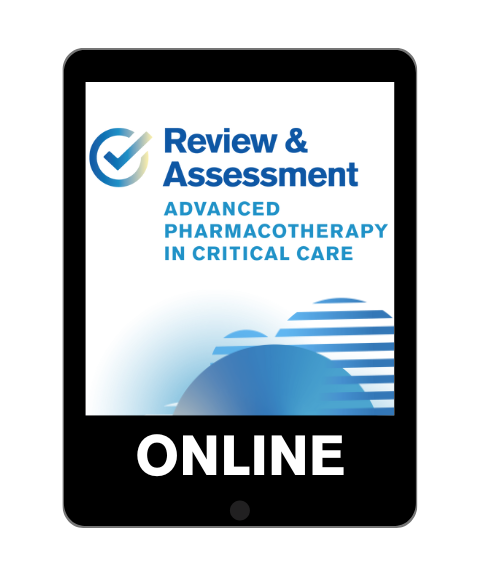The Advanced Pharmacotherapy in Critical Care course helps pharmacy professionals prepare for the Critical Care Pharmacy Specialty Examination administered by the Board of Pharmacy Specialties. Accredited continuing education credit and maintenance of certification points are available.

Examine how disease states and acute illnesses impact the effectiveness of pharmacologic treatments for various disease states and conditions during this online course developed by highly skilled experts. This course also prepares pharmacy professionals for the Critical Care Pharmacy Specialty Examination administered by the Board of Pharmacy Specialties. Course participants can earn up to 12 accredited continuing education (ACE) credits and maintenance of certification (MOC) points.
Course content covers:
Analgesia and sedation
Toxicology
Vasopressors
Infectious diseases
Endocrine/nutrition
Practice models and best practices
View the session list.
ACE Information:
ACE release date: April 29, 2024
SCCM Product Code: ADVPHARM24ON
ACE expiration date: April 29, 2027
Estimated time for activity completion: 12 hours
Price: $1,069.00 (not including membership discounts)

Postoperative care for transplant recipients requires a nuanced approach based on patients’ unique treatment needs and altered drug responses. This webcast explores timely identification and management of postoperative complications, adjustments to disease management protocols, and pharmacologic considerations of immunosuppressants in critically ill patients. Gain valuable insights to optimize care and reduce ICU admissions for transplant recipients. Earn 1 accredited continuing education (ACE) credit and maintenance of certification (MOC) point.
Continuing Education:
ACE release date: January 28, 2025
SCCM Product Code: WEBAP25ON
ACE expiration date: January 28, 2028
Estimated time for activity completion: 1 hour
Price: $45.00 (not including membership discounts)